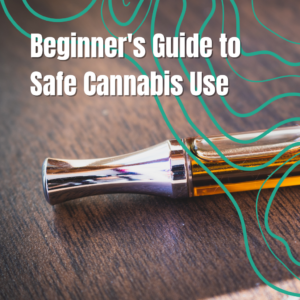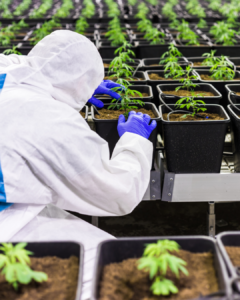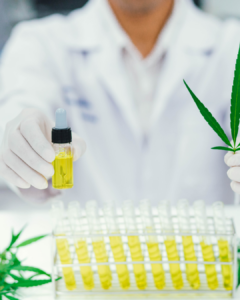

Cannabis contains many active compounds, but the two most well-known cannabinoids are THC (tetrahydrocannabinol) and CBD (cannabidiol). In recent years we cans see an increase of wellness products with these ingredients. Although they both come from the same plant, their effects and applications are not the same. In this article, we explore the main differences between CBD and THC and how they affect the body.
What is THC?
THC is the most well-known psychoactive compound in cannabis. It is responsible for the “high” or euphoric effects that many people experience when consuming marijuana. THC interacts with receptors in the brain, which alters perception, mood, and memory.

What is CBD?
CBD has no psychoactive effects. It is widely known for its therapeutic properties, such as pain relief, anxiety reduction, and improved sleep. By interacting with receptors in the endocannabinoid system, CBD promotes overall well-being without causing mental disturbances.
Differences in Effects
THC: Produces psychoactive effects, altering perception, mood, and increasing appetite. It is ideal for those seeking relief from severe pain, lack of appetite, or nausea.
CBD: Does not produce euphoria and is primarily used for medicinal purposes, such as reducing anxiety, improving sleep quality, and relieving mild pain.

Medical Uses
THC: Used in the treatment of chronic pain, neurological disorders, and some types of cancer.
CBD: Used to treat anxiety, depression, sleep disorders, and epilepsy.
Both THC and CBD have their own benefits and applications, and choosing between them depends on personal needs and health conditions. Be sure to consult a specialist to determine which is best for you.
Hope you found useful this article and remember that if you are looking for a dispensary in Pasadena we will be more than happy to assist you on your treatment.


